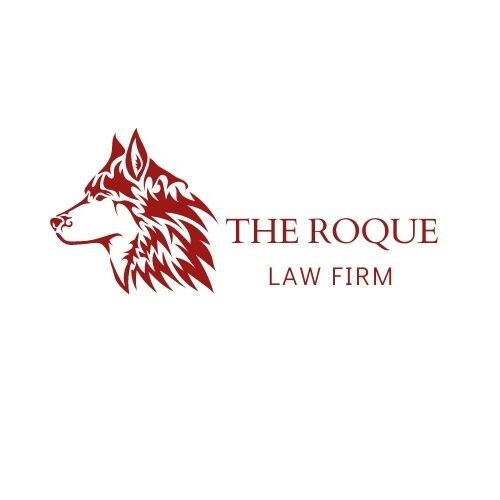Best Permanent Residency Lawyers in United States
Share your needs with us, get contacted by law firms.
Free. Takes 2 min.
Or refine your search by selecting a city:
List of the best lawyers in United States
About Permanent Residency Law in United States
Permanent Residency, often referred to as "Green Card" status, allows individuals to live and work permanently in the United States. This status provides significant benefits, including the ability to sponsor family members and eligibility for certain government programs. The path to obtaining Permanent Residency can be complex, involving various categories like family sponsorship, employment-based visas, or asylum. Understanding the legal framework is crucial for navigating this process successfully.
Why You May Need a Lawyer
While some individuals manage their Permanent Residency applications independently, hiring a lawyer can be crucial in several scenarios:
- Complexity of Legal Requirements: Immigration laws and regulations can be intricate and frequently change.
- Previous Immigration Issues: Past visa overstays or deportations can complicate new applications.
- Criminal Record: Certain criminal convictions may impact eligibility for Permanent Residency.
- Reporting and Documentation: Ensuring all paperwork is complete and submitted accurately is vital for success.
Local Laws Overview
Permanent Residency is governed by federal law, primarily managed by the United States Citizenship and Immigration Services (USCIS). Some key considerations include:
- Eligibility Categories: Employment, family sponsorship, asylum, and the Diversity Visa Lottery are common channels.
- Application Process: Typically involves filing forms such as the I-485 for adjustment of status within the U.S.
- Conditions and Rights: Green Card holders must maintain residency, and they cannot vote in federal elections.
- Path to Citizenship: Permanent Residents may apply for naturalization after meeting specific criteria, including a residency duration requirement.
Frequently Asked Questions
What is a Green Card?
A Green Card is an identification card proving that an individual has Permanent Resident status in the United States.
How can I apply for a Green Card?
Eligibility and the application process vary based on the category of immigration, such as family-based or employment-based applications. The USCIS website provides specific guidelines and required forms.
Can I work in the U.S. with a Green Card?
Yes, a Green Card allows you to work legally in the United States without restrictions, similar to a U.S. citizen.
What is the difference between a Green Card and a Visa?
A Visa is a temporary permit to enter the U.S., while a Green Card allows for permanent residency and work within the U.S.
How long does it take to get a Green Card?
The processing time varies depending on the category of application and USCIS workload. It can range from a few months to several years.
Do Green Card holders have to renew their status?
Green Cards are typically valid for ten years and require renewal. Conditional Green Cards are valid for two years and require converting to a regular Green Card.
Are Green Card holders eligible for U.S. Citizenship?
Yes, Green Card holders can apply for U.S. Citizenship through naturalization after meeting the eligibility requirements, including a residency period and knowledge of U.S. history and government.
Can I lose my Green Card status?
Yes, Green Card status can be revoked for reasons such as committing a crime, violating U.S. laws, or remaining outside the U.S. for an extended period without permission.
What is Adjustment of Status?
Adjustment of Status is the process of changing from a temporary visa status to Permanent Residency without leaving the U.S.
Can family members come with me if I get a Green Card?
Certain family members, like a spouse and unmarried children, may be eligible to apply for derivative status.
Additional Resources
For further assistance, consider the following resources:
- USCIS Office: Provides detailed information on applications and procedures.
- American Immigration Lawyers Association (AILA): Offers a directory of immigration lawyers and educational resources.
- Local Nonprofit Organizations: Many provide free or low-cost legal assistance and informational workshops. Examples include Catholic Charities and International Refugee Assistance Project (IRAP).
Next Steps
If you need legal assistance regarding Permanent Residency, consider the following steps:
- Consultation: Schedule a consultation with a qualified immigration attorney to discuss your specific case and legal options.
- Document Preparation: Gather all relevant documentation, such as identification, visas, and any employment or familial evidence, to ensure a smooth process.
- Research: Review local and federal guidelines to understand the steps involved in applying for Permanent Residency.
- Filing Application: Work with your legal advisor to file the appropriate forms with USCIS and attend any necessary interviews or hearings.
Lawzana helps you find the best lawyers and law firms in United States through a curated and pre-screened list of qualified legal professionals. Our platform offers rankings and detailed profiles of attorneys and law firms, allowing you to compare based on practice areas, including Permanent Residency, experience, and client feedback.
Each profile includes a description of the firm's areas of practice, client reviews, team members and partners, year of establishment, spoken languages, office locations, contact information, social media presence, and any published articles or resources. Most firms on our platform speak English and are experienced in both local and international legal matters.
Get a quote from top-rated law firms in United States — quickly, securely, and without unnecessary hassle.
Disclaimer:
The information provided on this page is for general informational purposes only and does not constitute legal advice. While we strive to ensure the accuracy and relevance of the content, legal information may change over time, and interpretations of the law can vary. You should always consult with a qualified legal professional for advice specific to your situation.
We disclaim all liability for actions taken or not taken based on the content of this page. If you believe any information is incorrect or outdated, please contact us, and we will review and update it where appropriate.
Browse permanent residency law firms by state in United States
Refine your search by selecting a state.














